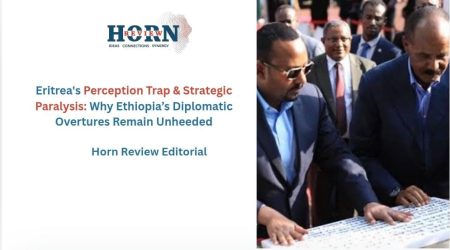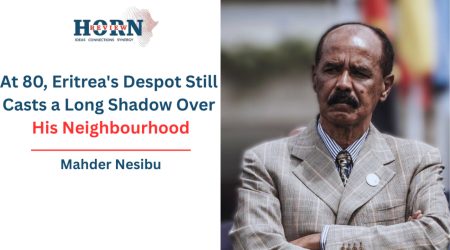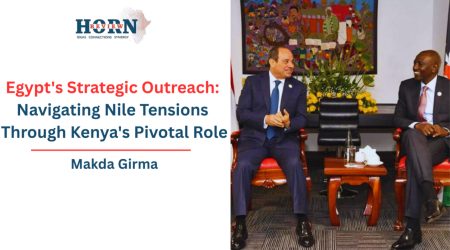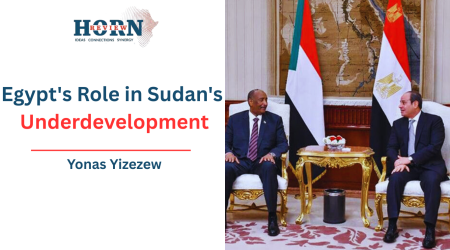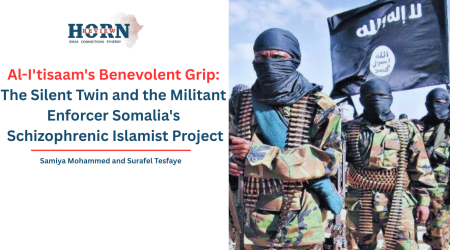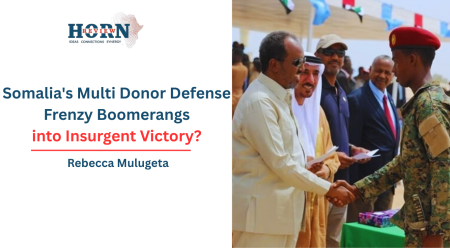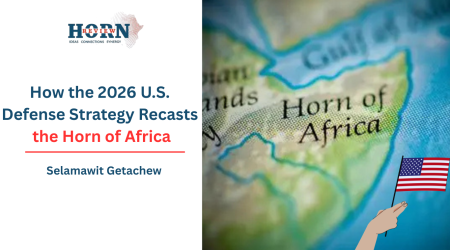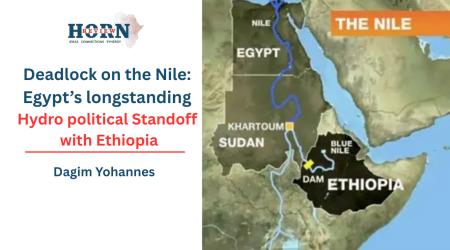
27
Aug
Trump’s Horn of Africa Policy and the Calculus of U.S. Influence
The foreign policy of Donald Trump’s two terms in the Horn of Africa presents a study in both philosophical consistency and tactical transformation. From 2017 to 2021, the administration’s approach was defined by a transactional, “America First” approach that sought to pivot away from traditional development aid and toward private sector driven engagement.
Still, the current policy demonstrates an intense shift in execution. Building on the ideological groundwork of the first term, the current administration has moved from reorienting policy to phasing out established institutions like USAID, resurrecting and expanding travel bans. It started engaging in highly selective, bilateral diplomatic overtures. The cause of this move is the administration’s belief that aid fosters dependency and distracts from private sector led growth. In Trump’s terms, this policy is not about disengagement but a deliberate reorientation of U.S. interests. The administration demands to advance American influence in a competitive world. It focuses on reclaiming leadership in global trade and promoting prosperity of the U.S. (Blackwill, 2019).
The Horn of Africa has long served as a critical link for U.S. grand strategy. For the U.S., it is a region where geopolitical interests intersect with security imperatives. The first term legacy was defined by its dual purpose, to eliminate threats through military action and to counter rivals through commercial engagement. The 2017 National Security Strategy put great-power competition at the center of U.S. policy and named China as the pacing challenge (The White House, 2017). John Bolton’s 2018 Africa speech then cast U.S. engagement in Africa through that lens (Bolton, 2018). During the first term, counterterrorism and sovereign choices were prioritized setting the frame for the second term.
During the first term for instance, Somalia saw a rising measure of U.S. strikes and then a sudden decision in late-2020 to withdraw most U.S. troops from Somali bases (International Crisis Group, 2023). That choice reduced tactical advising and shifted risk to Somali partners in the near term. In the meantime, it contributed to today’s return to heavier remote strike use.
The policy on Somalia illustrates the combination of kinetic pressure and limited state building. However, during the second term U.S. Africa Command resumed frequent airstrikes against ISIS Somalia and al-Shabab since taking office (Gabobe, 2025). The intent is to raise the groups’ operational costs, support Somali and allied offensives, and keep the group off the main supply corridors.
This singular focus on counterterrorism is further compounded by a travel ban. Visa and travel restrictions served as coercive tools. The administration issued a wider travel ban that brought back earlier restrictions and expanded them to various countries including Sudan, Somalia and Eritrea (Ferragamo, 2025). For instance, the order on Eritrea did not frame it as a security threat or link it to extremist networks. Instead, it pointed to the country’s consistent failure to meet basic administrative and other requirements that Washington views as essential for cooperation. Nevertheless, the ban is an instrument of the transactional philosophy, designed to garner cooperation from foreign governments and advance U.S. security objectives.
Simultaneously, the transactional approach of the second term is most evident in its highly selective and calculated diplomatic overtures. To illustrate, Eritrea saw tentative outreach rather than normalization. The administration has engaged and reached out in a strategic recalibration of rivalries such as Eritrea (Plaut, 2025). No sanctions relief specific to Eritrea was announced and the human rights file remains heavy (ibid). If the administration pursues a narrow security dialogue with Asmara, the likely aim might be Red Sea de-confliction and migration route management rather than internal reforms. Especially preventing its provocative actions against Ethiopia risking the outbreak a devastating war in the region.
Ethiopia sits at the intersection of every instrument Washington used this year in the region. For the past three decades, the United States viewed Ethiopia as a key anchor state and security partner in the region. A formal diplomatic welcome to Ethiopia’s Ambassador to the United States was extended and met with President Trump at the White House. This invitation was viewed as a signal of the administration’s desire to restore and renew the long standing partnership with Ethiopia. AFRICOM commander, General Langley’s visit to Ethiopia serves as additional evidence supporting this assertion (U.S. Africa Command Public Affairs, 2025).
Trade policy has also tightened in parallel. The administration imposed a baseline ten percent tariff on almost all imports with reciprocal increases on selected partners. Even though the tariff policy is not solely aimed at the Horn, it affects Horn countries recovery prospects and investor sentiment in export zones. It also pushes countries to diversify toward Gulf and Asian markets, where trade financing and logistics are available. For instance for Ethiopia, the tariff shock landed while it is in default and still negotiating comprehensive debt treatment (Ministry of Finance of the FDRE, 2025). Addis Ababa’s response mixed fiscal moves at home with efforts to lock in alternative partners across the Gulf and Asia.
Djibouti remains the anchor of U.S. posture. Camp Lemonnier and related facilities are the hub for surveillance, logistics, and special operations. For the U.S., Chinese military and commercial infrastructure nearby raises daily operational and diplomatic friction (Blanchard, 2025). The administration’s tariff and aid stances do not directly touch that base agreement. Yet, there are concerns that the broader message of transactionalism can weaken bargaining space with Djibouti at a time when Beijing offers predictable payments and high visibility projects.
Amidst this, the most significant diplomatic shift of the second term has been the exploratory recognition talks with Somaliland. It shifted Somaliland’s move from peripheral to central focus. In May 2025 Somaliland’s president stated that recognition was on the horizon after talks with U.S. officials. However, the State Department has not announced a policy change and continues to reference Somali sovereignty in public. But the combination of Berbera’s port and airfield, Somaliland’s relative stability, and the competition with China in nearby Djibouti created space for discussion. Trump’s response that the U.S. is “looking into” recognizing the self-declared republic is a prime example of a transactional policy.
Two practical realities close the picture. Primarily, the Red Sea and Gulf of Aden are more congested and contested than at any point since the anti-piracy surge a decade ago. This makes Djibouti and Berbera as a major destination for any great power that wants reach in Africa and the Middle East. Even so, Trump’s limited engagement in the region may maintain existing dynamics.
By Yonas Yizezew, Researcher, Horn Review
References
- The White House (2017). National security strategy of the United States of America.
- National Security Council (2018). Remarks by National Security Advisor Ambassador John R. Bolton on the Trump Administration’s new Africa Strategy. The White House.
- U.S. Africa Command Public Affairs. (2025). Commander’s visit to East Africa reiterates security partnerships, cooperation. United States Africa Command.
- Ministry of Finance of the FDRE. (2025). The Ethiopian government concludes Memorandum of Understanding with its Official Creditor Committee under the G20 Common Framework. Ministry of Finance.
- Blackwill, R. D. (2019). Trump’s foreign policies are better than they seem. Council on Foreign Relations.
- International Crisis Group. (2023). Out of the box: How to rebalance U.S. Somalia policy. International Crisis Group.
- Gabobe, M. (2025, June 24). Under Trump, US strikes on Somalia have doubled since last year. Why? Al Jazeera.
- Ferragamo, M. (2025, June 26). A guide to the countries on Trump’s 2025 travel ban list. Council on Foreign Relations.
- Plaut, M. (2025, August 4). While Presidents Trump and Afwerki exchange warm messages, US Senators call for action against the Eritrean dictatorship. Martin Plaut.
- Blanchard, L. P. (2025, June 6). China’s engagement in Djibouti. Congressional Research Service.

